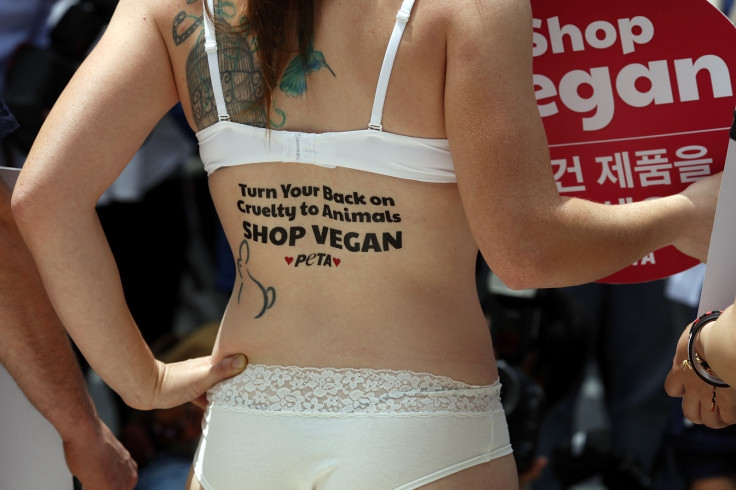Don't claim to be vegan if you're wearing leather
Animal agriculture is an ugly and bloody business that none of us need buy into.

Unless you've been living in a cave, you can't have missed the explosion of vegan options on restaurant menus and supermarket shelves. Cutting meat, eggs, and dairy out of our diets has never been easier than it is today.
But being vegan isn't limited to what we eat – it's about not harming animals, so what we put on our backs is just as important as what we put in our mouths.
Each time you purchase a leather jacket, belt, or pair of shoes, you're supporting all the abuses of the meat industry, from the extremely crowded confinement that animals are forced to endure to the common practices of branding, tail-docking, dehorning, and castration, which are all performed without any painkillers.
And just as chickens are sent off to the abattoir at the end of their lives, the cows, pigs, alligators, and sheep who are exploited and killed for their skin or wool meet the same terrifying fate, each one an individual who didn't want to die.
Regardless of whether the label says "Italian leather" or "Made in France", almost all leather originates in India, Bangladesh or China, where animal-welfare laws either are non-existent or go unenforced.
In India, the slaughter of cows is legal in only three states, so animals can be forced to walk hundreds of miles on so-called "death marches", with many collapsing and dying on the side of the road from sheer exhaustion. The legs of the survivors are bound, and their throats are cut while they're still conscious.
In China, the world's leading exporter of leather, an estimated 2 million cats and dogs are killed each year for their skins. A PETA Asia exposé showed a processing plant owner explaining that they market products which are exported around the world, as "lambskin". So if you buy leather, there is almost no way to tell, short of a DNA test, what – or rather, whom – you are wearing.
In addition to inflicting immense cruelty on animals, the leather industry shares responsibility for causing the same environmental damage that the meat industry does. Turning animal skins into leather requires the use of dozens of different chemicals, including highly toxic mineral salts, formaldehyde, coal-tar derivatives, and various oils, dyes, and finishes (some of which are cyanide-based).
Tannery runoff contains large amounts of pollutants, such as lime sludge, sulphides, and acids. And animals on factory farms produce 130 times as much excrement as the entire human population – without the benefit of waste-treatment plants.
According to a United Nations study, animal agriculture is a leading cause of climate change. In fact, vast swaths of the rainforest in South America have been eliminated to make way for cattle. Farming animals for their skin and flesh requires massive quantities of water and grain, both of which are scarce resources in much of the world.
In addition to hurting animals and the environment, leather production harms people. Those who work in and live near tanneries suffer as a result of exposure to the toxic chemicals that are used to process and dye leather.
The US Centers for Disease Control and Prevention found that the incidence of leukaemia among US residents in an area near one tannery was five times the national average. Arsenic, a common tannery chemical, has long been associated with lung cancer in workers who are exposed to it on a regular basis. Studies of leather-tannery workers in Sweden and Italy found cancer risks "between 20% and 50% above [those] expected". In poorly regulated Third World countries, the statistics are far worse.
Animal agriculture is an ugly and bloody business that none of us need buy into. Vegan leather runs the gamut from microfibres, Ultrasuede, recycled polyurethanes, and bio-fabrics to materials made from cork, oak trees, pineapple leaves, and mushrooms. The biggest launch in the fabric world this year is Vegea – or "wine leather" – made from the grape residue of the Italian wine-making industry.
Savvy high-street brands like Esprit, Urban Outfitters, and Birkenstock are ramping up their animal-friendly credentials and highlighting their vegan leather items to shoppers, and Stella McCartney, Bruno Pieters, and Faustine Steinmetz are among the top designers swearing off skins in their collections. Even the likes of Givenchy and Versace's Versus are prominently promoting "eco-leather" items to reach ethically aware millennial consumers.
This World Vegan Month, please consider buying only cruelty-free clothing in the future – both for the planet and for the people and animals who are suffering for our fashion choices.
© Copyright IBTimes 2025. All rights reserved.




















